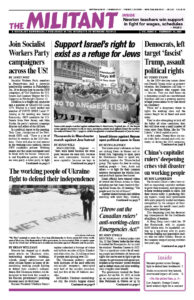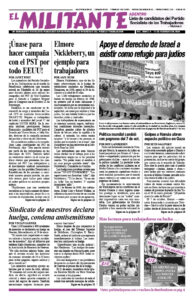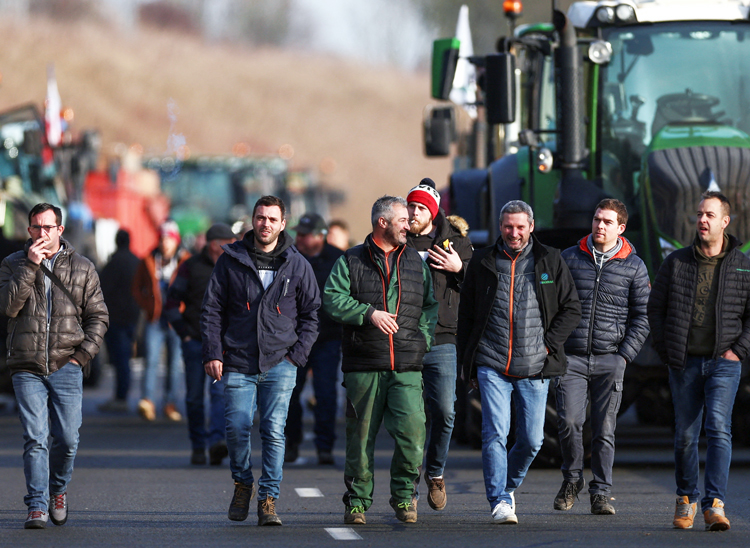Long lines of French farmers driving their tractors blocked traffic around Paris and across France Jan. 29, demanding the government of President Emmanuel Macron and European Union officials put an end to policies that threaten their livelihoods.
Faced with skyrocketing energy and fertilizer prices, and choking on growing “climate change” regulations, farmers across Europe are up in arms.
Recent attempts by the French government to lower inflation by pressuring supermarket owners to reduce their prices has led them to cut prices they pay to farmers, forcing some farmers to sell below their cost of production.
The protests, now into their second week, have broad public support. France is the EU’s biggest agricultural producer, with thousands of farmers producing meat, dairy, wine and other commodities.
Macron’s government has dropped plans to reduce state subsidies on agricultural diesel, but farmers say this is not enough.
The government has “completely forgotten that behind this job, there are women and men who need to make their living, to be proud again,” said Luc Smessaert, who helped organize a protest near Beauvais, north of Paris, Jan. 23.
In Germany, Romania, Italy, Ireland, Spain and Poland tens of thousands of farmers facing similar government attacks have taken to the streets.
Under the pressure of the capitalist crisis, the EU has cut programs that in the past made payments to farmers. And in the name of saving the climate, the EU now makes subsidies contingent on farmers forgoing development of more arable land and reducing fertilizer use by at least 20%.
Ursula von der Leyen, president of the European Commission, responded Jan. 25 to the protests, saying she was opening “strategic dialogues” on farmers’ issues.
“We don’t have much faith,” Ana Mahe of the Farmers’ Alliance Ireland, said at a protest outside the EU parliament in Brussels.
EU demands that Irish farmers cull cattle herds to reduce nitrogen oxide emissions have added to the fury of farmers there.
Clause Hochrein, a German farmer from Eisenheim, told the Financial Times the government’s fuel subsidy cut, coming on top of tougher EU rules on the use of fertilizer and pesticides, was the last straw. “The government has talked to the NGOs, they’ve talked to each other, over our heads, and never with us — and that has to change.”


